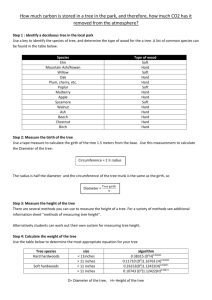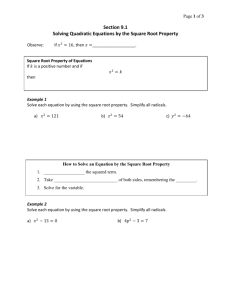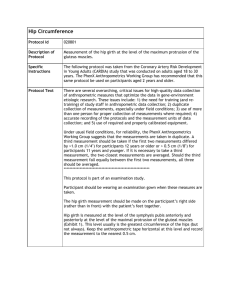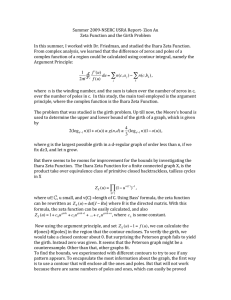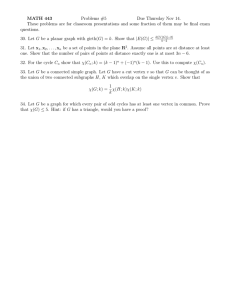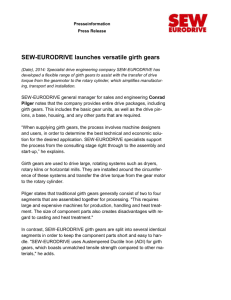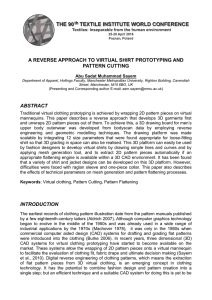Animal Weigh? How Much Does Your
advertisement
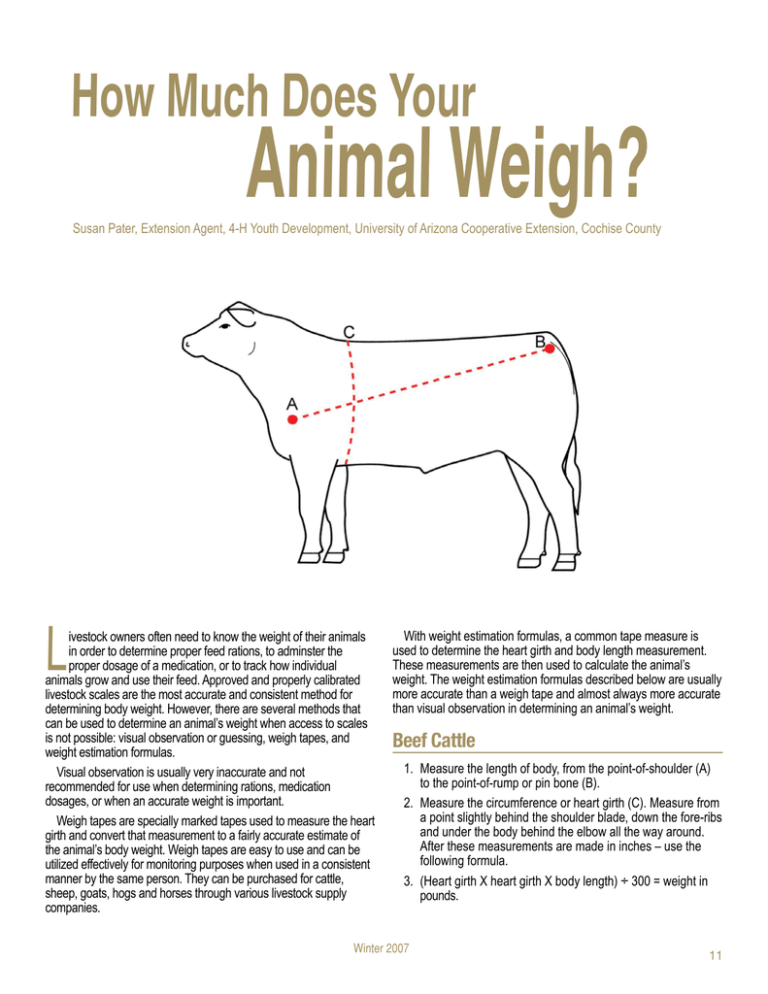
How Much Does Your Animal Weigh? Susan Pater, Extension Agent, 4-H Youth Development, University of Arizona Cooperative Extension, Cochise County L ivestock owners often need to know the weight of their animals in order to determine proper feed rations, to adminster the proper dosage of a medication, or to track how individual animals grow and use their feed. Approved and properly calibrated livestock scales are the most accurate and consistent method for determining body weight. However, there are several methods that can be used to determine an animal’s weight when access to scales is not possible: visual observation or guessing, weigh tapes, and weight estimation formulas. Visual observation is usually very inaccurate and not recommended for use when determining rations, medication dosages, or when an accurate weight is important. Weigh tapes are specially marked tapes used to measure the heart girth and convert that measurement to a fairly accurate estimate of the animal’s body weight. Weigh tapes are easy to use and can be utilized effectively for monitoring purposes when used in a consistent manner by the same person. They can be purchased for cattle, sheep, goats, hogs and horses through various livestock supply companies. With weight estimation formulas, a common tape measure is used to determine the heart girth and body length measurement. These measurements are then used to calculate the animal’s weight. The weight estimation formulas described below are usually more accurate than a weigh tape and almost always more accurate than visual observation in determining an animal’s weight. Beef Cattle 1. Measure the length of body, from the point-of-shoulder (A) to the point-of-rump or pin bone (B). 2. Measure the circumference or heart girth (C). Measure from a point slightly behind the shoulder blade, down the fore-ribs and under the body behind the elbow all the way around. After these measurements are made in inches – use the following formula. 3. (Heart girth X heart girth X body length) ÷ 300 = weight in pounds. Winter 2007 11 Example: Example: Heart girth (76”) X heart girth (76”) X body length (66”) divided by 300 = 1,270 pounds. 76 X 76 = 5,776 Heart girth (70”) X heart girth (70”) X body length (65”) divided by 330 = 965 pounds. 70 X 70 = 4,900 5,776 X 66 = 381,216 4,900 X 65 = 318,500 381,216 divided by 300 = 1,270 pounds 318,500 divided by 330 = 965 pounds Sheep and Goats For sheep and goats, use the same method described for beef cattle. When working with unshorn sheep, be sure to part or compress the wool to insure an accurate heart girth measurement. Hogs 1. Measure the length of body from A to B. Do this by restraining the animal and measuring the length of body from between the ears (poll) over the backbone to the base of the tail. 2. Measure the circumference (heart girth) of body (C). After these measurements are made in inches – use the following formula. 3. (Heart girth X heart girth X body length) ÷ 400 = weight in pounds Note: For hogs weighing less than 150 pounds, add 7 pounds to the weight figure from this formula; for hogs weighing 150 to 400 pounds, no further adjustment is needed. Horses 1. Measure the length of body from, from the point-of-shoulder (A) to the point-of-rump (B). 2. Measure the circumference (heart girth) of body (C). Measure from the base of the withers, down under the belly, just behind the elbow and foreleg, and all the way back around. After these measurements are made in inches – use the following formula. 3. (Heart girth X heart girth X body length) ÷ 330 = weight in pounds. 12 Tips for increasing Accuracy and Safety • Make certain the animal is standing squarely on level ground. • Have someone stand on the opposite side to help with the girth measurment. Make sure the tape lays flat and is not twisted. • Pull the tape snug. • When using a weigh tape, position the tape according to the manufacturer’s directions. • A cloth measuring tape is preferred. • You may need to restrain the pig or some feed may help you get the needed measurements. • Be calm, don’t rush in. Make sure the animal is comfortable with the measuring tape. • When monitoring an animal’s weight over time, it is best to have the same person using the same method. • By following a set procedure you will be able to monitor change that can be used as an indicator of health. • The weight estimation formulas and weigh tapes may be used effectively for many animals, but are not highly accurate for pregnant animals or those with extreme conformational irregularities. • Keep a record that you can refer back to over time. References Arizona Cooperative Extension. Estimate Animal Weight from Body Measurement. University of Arizona. Q65. Gibbs, P.G. and D.D. Householder. Estimating Horse Body Weight with a Simple Formula. Texas A & M University. http://smith-tx.tamu. edu/publications/hrg012-bodyweight.pdf & Backyards Beyond
